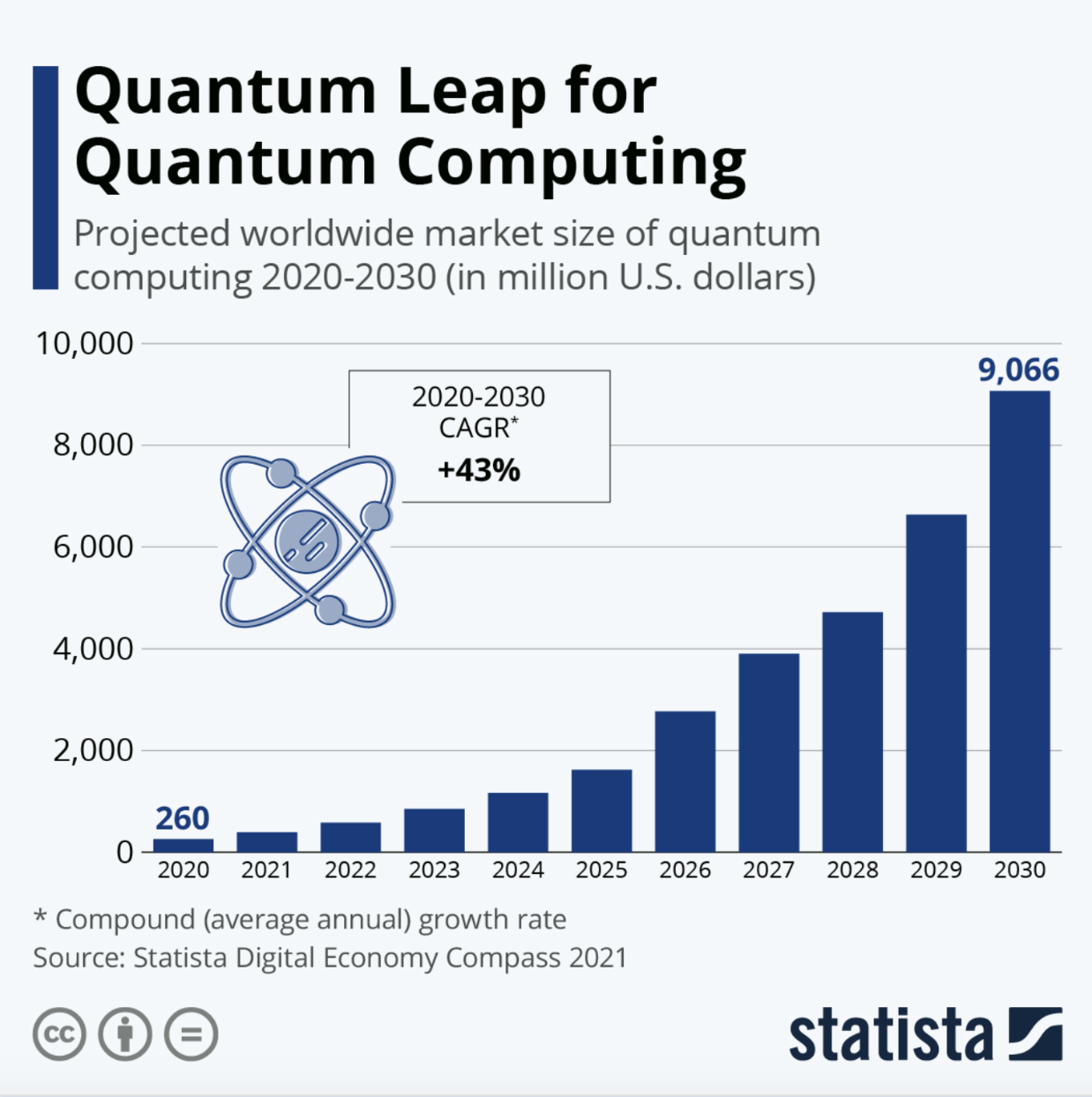Issue 132: Something Bigger than AI is About to Change the World
Welcome to Backstory, a weekly newsletter turning global technology shifts into a three-minute read. This week, we’re talking about quantum computing. – Mary Ames, Director of Strategy
THE BIG TAKE
Something Bigger than AI is About to Change the World
The world is (rightly) consumed with artificial intelligence. Individuals are learning to use AI chatbots and are concerned that the technology could take their jobs. Businesses are rushing to embrace the new technology to improve productivity. For AI startups, it’s boom times for any product loosely connected to generative AI technology. What if we were to inform you that something much more potent than AI lurks just beyond the horizon? This technological leap will transform every aspect of human civilization in ways we can’t imagine. This something exists, and it's called quantum computing.
A new chapter for humanity. Quantum computing will radically transform our computing power. Imagine if the powerful computers used to create AI chatbots like ChatGPT were trillions of times faster. Quantum computing will unlock the ability to complete tasks that currently take thousands of years in seconds. Quantum computers make calculations much faster than digital ones. They do this using qubits, the quantum equivalent of bits – the zeros and ones that convey information in a conventional computer. We don’t have a firm conception of what this computing power will mean for humanity, but physicists like Michio Kaku predict that we can use these machines to cure diseases like cancer.
Power beyond conception. According to The Guardian, we are about to leave the digital age behind for a quantum era that will bring unimaginable scientific and societal change. Computers will no longer use transistors but subatomic particles to make calculations, unleashing processing power. This is just the beginning. If the AI revolution is a precursor, the world is headed for a profound change. We can see the future. It’s time to start planning.
QUOTE OF THE WEEK
“For those who believe, no explanation is necessary; for those who do not believe, no explanation will suffice.”
– Michio Kaku, Physicist
CHART OF THE WEEK
We are staying with the quantum computing theme. The quantum computing market size is expected to grow dramatically as the technology develops in the current decade. The global quantum computing market could reach $9 billion in revenue by 2030, compared to $260 million in 2020.
OUR VIEWS THIS WEEK
AI is a public good. Given the power and potential of artificial intelligence (AI) to change the planet for the better, shouldn’t governments have a more significant role in safeguarding the technology? That’s the simple but complex question we investigated in this archived piece in Xische Reports. The development and use of AI technology are crucial for society, and it can’t be left to big tech giants alone. Moreover, the US government (and others like it) are missing an excellent opportunity to use AI for good across the public sector.
Local fintech. Have you heard about BNPL? If not, we have you covered, as it is one of the fastest-growing sectors in global fintech. BNPL stands for “Buy Now Pay Later,” and it is driving growth in the untapped market of people who can’t or won’t use credit cards — and the UAE is an emerging hub. If you want to peer into the future of the local technology sector, start with fintech.
SPOTTED ELSEWHERE
Is renewable energy bad? The next United Nations climate conference will be held in Dubai later this year. It’s a forum for fresh ideas and discussion about the ongoing problem of climate change. While many agree that renewable energy is vital for a healthier climate, some critics argue that it creates more problems than it fixes. While we don’t take a side in the debate, we must have a vibrant discussion about these challenges to find the best solution for the climate crisis.
RIP AMP. Do you remember when Google announced a new and faster way to render websites called AMP? It created a lot of headaches for media companies that had to change how they published their content. Google promised that AMP would make a better, faster web. Ultimately, Google spoiled its trust with publishers, as The Verge discovered in this fascinating long read about AMP.
QUICK HITS
Will we ever...hibernate in space?
A third of scientific papers may be fraudulent.
What is a clock anyway?















